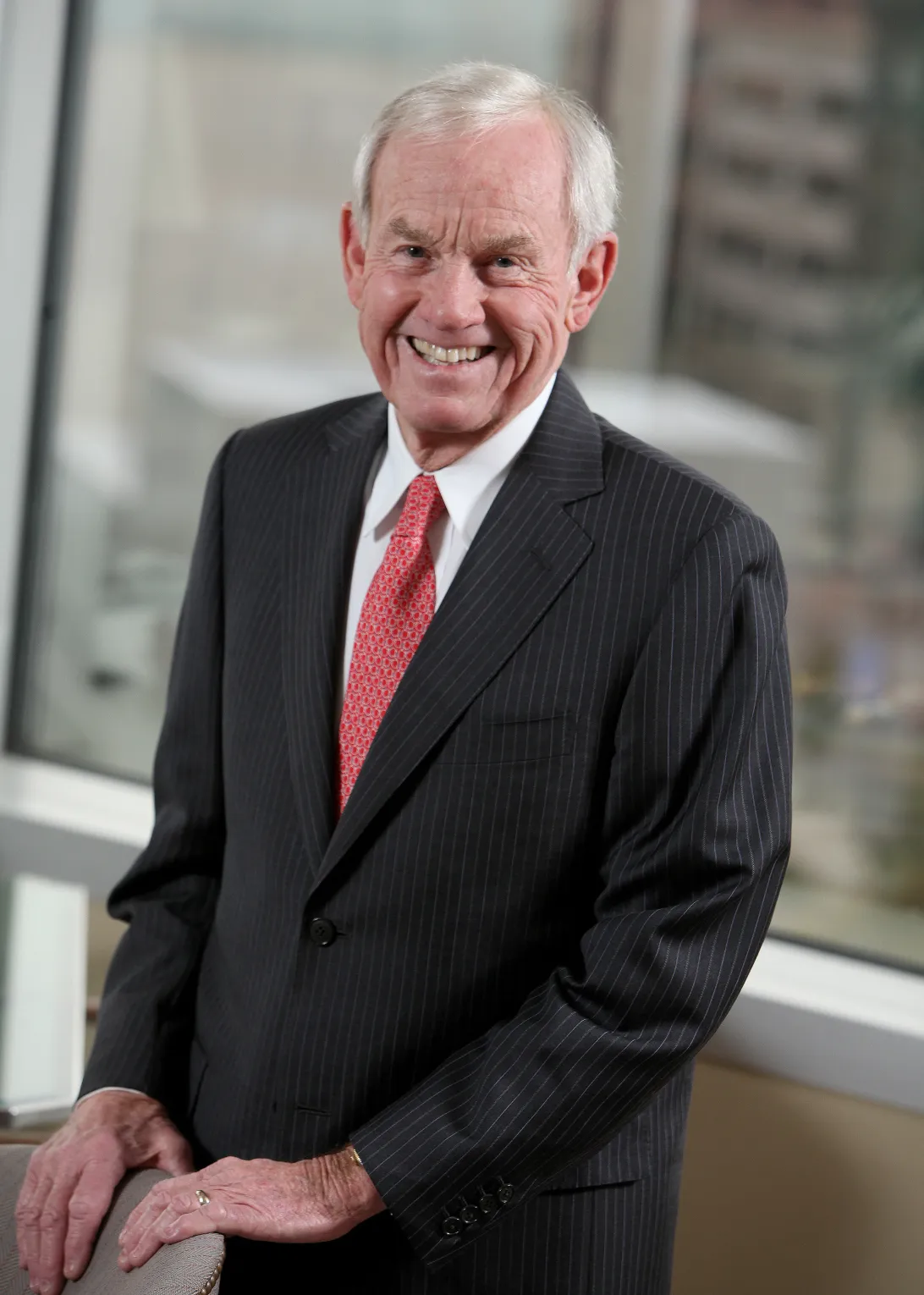In a warming world, is there a safe harbor?
Articles
From the President’s Desk
View more from News & Articles or Primerus Weekly

What in the world is going on?
I'm sitting here in my Grand Rapids office looking out the window at what should be a beautiful day, but it's hazy with smoke from Canadian wildfires. The air quality alert on our phones tells a story that's becoming all too familiar: We're breathing the consequences of fires burning hundreds of miles away, their impact stretching across North America.
Twenty years ago, we made a business decision at Primerus that seemed obvious. After having to halt a convention in Florida due to hurricane threats, we vowed to stay out of hurricane-prone areas during storm season. It was a simple risk management decision: Why expose our members to predictable seasonal dangers?
But then came Asheville, North Carolina in 2024. If anywhere should have been safe from extreme weather, it was the mountains of western North Carolina. We chose the location precisely because it was removed from coastal hurricane zones. Yet there we were, forced to cancel our annual conference due to catastrophic flooding from Hurricane Helene – an "unprecedented" event that devastated a region supposedly immune to such disasters.
The question haunts me: Is anywhere safe anymore?

These aren't isolated incidents. The Canadian wildfires have become an annual phenomenon, but their reach and intensity have grown dramatically. What once affected only local communities, now blankets major population centers across North America with dangerous smoke. The fires in California have reached unprecedented scales, devastating entire cities. The hurricanes striking areas like Asheville represent weather patterns we've never seen before.
This spring, dozens were killed in the South and Midwest as flash flooding and tornadoes swept the region.
This is the face of accelerated climate change, and it's happening within the span of a single generation. Yes, Earth's climate has always evolved over geological time. Ice ages came and went over millennia. But what we're witnessing now is different. Changes that should unfold gradually over centuries are compressed into decades.
The scientific community has reached overwhelming consensus: human activities, particularly the burning of fossil fuels, are accelerating these changes by damaging the atmospheric layers that regulate our planet's temperature. The evidence isn't theoretical anymore. It's readily available outside our windows, disrupting our business plans, and affecting our daily lives.
If the problem is clear and the scientific consensus is solid, why hasn't meaningful action followed? The answer, unfortunately, comes down to money and politics.
The fossil fuel industry represents trillions of dollars in revenue and employs millions of people. Any transition away from fossil fuels threatens these economic interests. When an industry with such vast resources faces existential change, it fights back and not necessarily with better solutions, but with political influence.
This dynamic isn't unique to climate issues. We see the same pattern with gun violence in the United States. We know how to dramatically reduce mass shootings and gun deaths, but the financial interests of the gun industry consistently override public safety concerns. The solutions exist; the political will does not.
Politicians, dependent on campaign funding from these industries, must choose to either support meaningful change and risk losing financial backing, or maintain the status quo and keep their jobs. Too often, they choose self-preservation over public interest.
Climate change isn't a distant threat anymore. And the question isn't whether we can solve it. The question is whether we'll choose leaders with the character to do what needs to be done to make a positive difference.
Here's what gives me hope: The solutions aren't actually that difficult.
The move to clean energy is already underway and accelerating. Solar and wind power have become cost-competitive with fossil fuels. Electric vehicles are becoming mainstream. The technology exists to dramatically reduce our carbon footprint without destroying our economy or way of life.
But as I’ve stated in this column previously – and for other reasons – I question the motives of our current administration.
What we need is leadership with the character and integrity to prioritize long-term public welfare over short-term political survival. We need representatives who understand that their primary responsibility is to the people they serve, not to the industries that fund their campaigns.
This brings us to a fundamental question about the kind of leaders we choose to elect. Are we selecting people of high character, capability, and genuine commitment to public service? Or are we accepting leaders whose primary motivations are personal gain, political survival, and settling scores?
The quality of our leadership directly impacts our ability to solve serious problems – whether climate change, gun violence, or homelessness. These challenges all have workable solutions, but they require leaders willing to stand up to powerful interests and make decisions based on evidence rather than campaign contributions.
If you think the Canadian smoke is bad now, and if you're concerned about the increasing unpredictability of extreme weather, consider what the future holds if we don’t change course.
Hint: It will only get worse, according to scientists.
We can continue letting short-term economic interests override long-term survival, or we can demand leaders who have the integrity to tackle hard problems with real solutions.
The choice is ours.
We're at a crossroads. The direction we choose will determine what kind of world we leave for our children and grandchildren. The solutions exist. The technology is available. What we need now is the collective will to act, and leaders with the integrity to actually lead us there.
Best regards,
Jack Buchanan, President